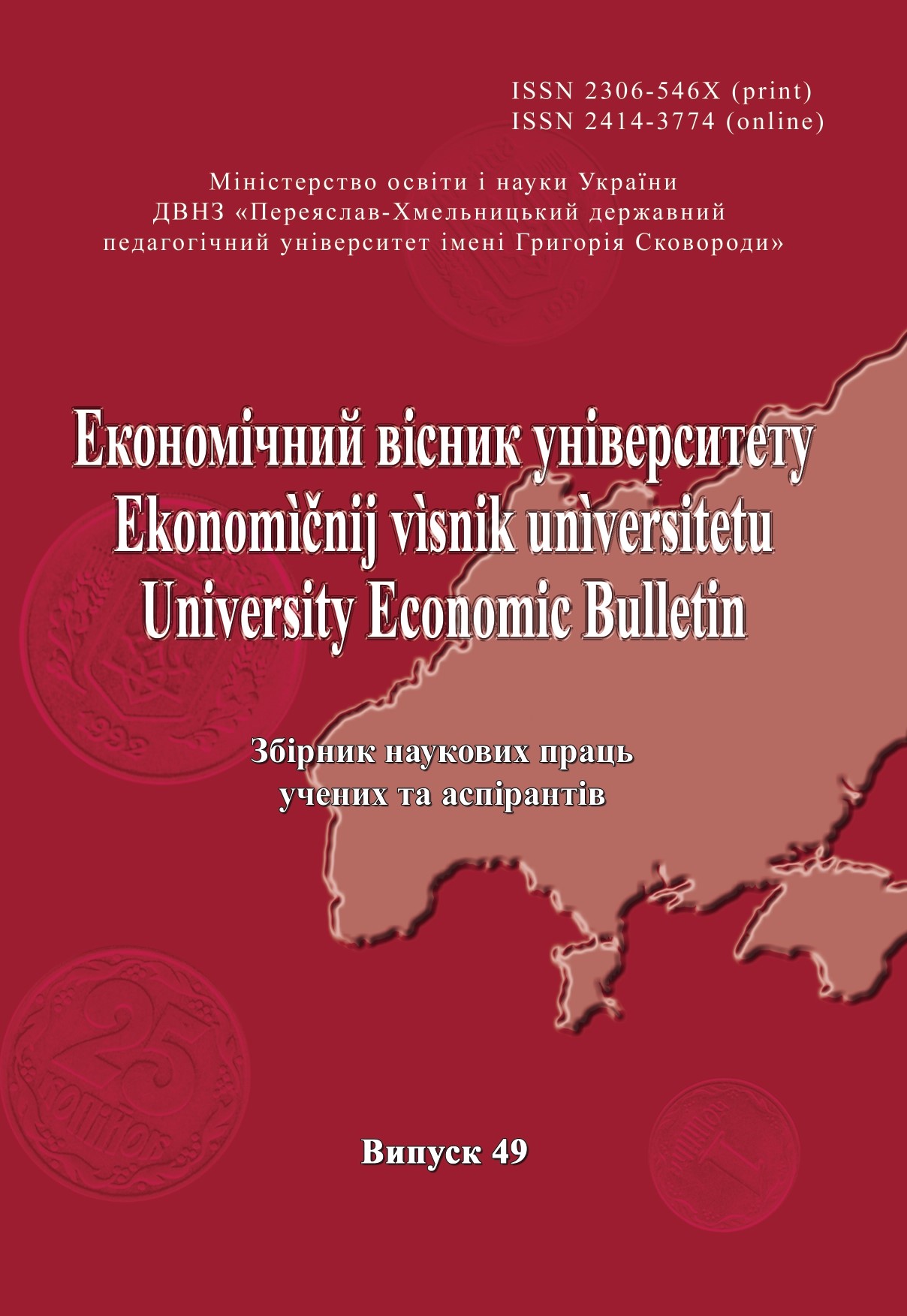Промисловий розвиток у забезпеченні регіональної інклюзії
Industrial development in regional inclusion provision
Author(s): Liudmyla Deineko, Olena TsyplitskaSubject(s): National Economy, Regional Geography, Economic development, Socio-Economic Research
Published by: Університет Григорія Сковороди в Переяславі
Keywords: industrial policy; regional inclusion; Sustainable Development Goals; social inclusiveness; foreign investments;
Summary/Abstract: Relevance of research topic. The regional industrialization is one of the most effective strategies of poverty reduction and economic backwardness. Ensuring the inclusiveness of industrial development, particularly from a regional perspective, will create the conditions that best meet the needs of local communities and the existing economic potential of the regions. Formulation of the problem. Inclusive community development requires a holistic, systemic approach that can build a set of coordinated goals and objectives to foster industrial development. Analysis of recent research and publications. The problems of ensuring regional inclusion have recently become the object of study of many international organizations and Ukrainian and foreign scientists: Avdokushin E.F., Acemoglu D., Robinson J., Bobukh I., Schegel S., Mantsurov I.G., Melnyk M.I., Piketti T., Prognimak O.D., Rainert E., Ragnieri R., Ramos R., Reshetilo V.P., Khomenko O.V., and others. Selection of unexplored parts of the general problem. Existing studies are mainly aimed at identifying general issues of inclusive development, clarifying its essence and performance indicators, but do not sufficiently reflect the variety and role of those factors through which such inclusive development is achievable, in particular, at the regional level. Setting the task, the purpose of the study. The aim of the article is to identify the opportunities and limitations of the industrial sector to ensure regional inclusion in the context of regional decentralization and Eurointegration. Method and methodology for conducting research. In the study both general scientific methods (analysis, synthesis, induction, comparison) and special methods (statistical grouping and ranking, correlation analysis, abstract-logical method, system analysis) are used. Presentation of the main material (results of work). The method of rating the regions of Ukraine by the level of inclusiveness, which is based on 15 socio-economic and environmental indicators is proposed. It allowed to establish the relationship between the GRP per capita, industrial development and the level of regional inclusion on the base of correlation analysis. The reasons for the low inclusiveness of the regions are analyzed. The barriers to industrial development consisting of insufficient investment in industry, technological backwardness of industrial production, lack of coordinated interests and actions of stakeholders, were revealed. The gap between the rates of economic growth of regions and the benchmarks set by the Sustainable Development Goals was designated. The directions of regional institutional development to promote industrial progress and inclusive growth are proposed. The field of application of results: regional industrial policy. Conclusions according to the article. The revealed relationship between the level of industrial development of the region and its inclusiveness allows to argue that a higher level of inclusiveness can be achieved by increasing industrial development in low-rated regions. For this purpose, it is necessary to attract investment in new jobs and decent wages, to develop new institutional technologies, cooperative forms of development and economic management, aimed at wide use of comparative advantages of the regions.
Journal: Економічний вісник університету
- Issue Year: 2021
- Issue No: 49
- Page Range: 59-70
- Page Count: 12
- Language: Ukrainian

